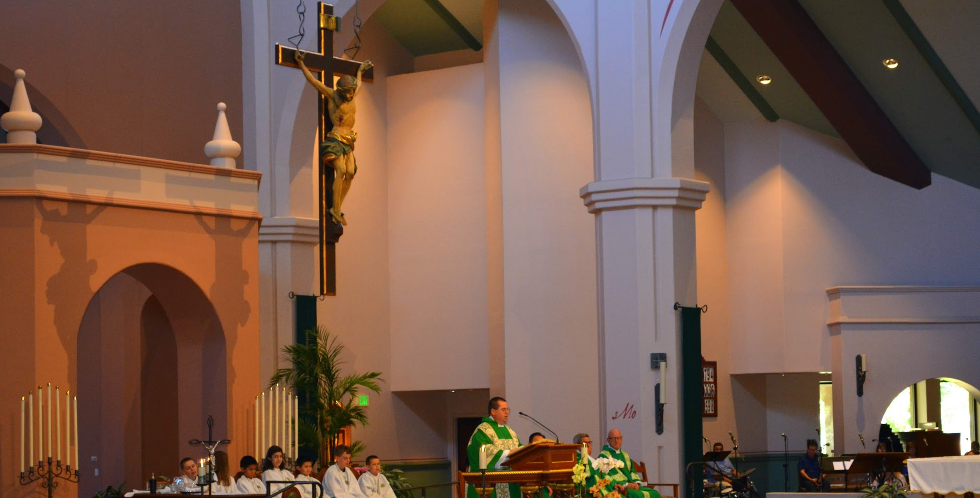I just finished reading a blog post by Jennifer Fitz that is an open letter to gay priests and generally a response to an article in the New York Times where they interviewed a number of gay priests, mostly anonymously. While the post is a bit more coarse than I would write, it well sums up my thoughts, both on the NYT article and generally how we should view gay priests.
When I read that NYT article I was very frustrated by how it was framed. It acted as if priests who are attracted to other men are in some different situation than priests who are attracted to women. Or frankly, that they’re all that different from the rest of us when it comes to sexuality in the most important sense: We’re called to have restraint and mastery of our sexual desires.
Is it any easier for a married man to be respectful of his wife’s need for sexual abstinence during the 2 to 6 months surrounding the birth of a child? Does the desire for sexual intimacy magically go away during those sorts of times? Could it perhaps be harder for us married men because we have strong personal and intimate memories of the joys of sex with our spouses when we must be celibate for long periods of time?
Perhaps that last question pushes the boundaries of rhetorical truth, but the point is we’re all called to show sexual restraint and even for a married couple there are more days than not where we have to do that.
And that means that there is both good news and bad news for priests who have attractions to other men. The good news is that we get that it is difficult. We may not know what it is like to be attracted to people of the same sex, but trust us, we know what it is like to have resist sexual temptations. And so we’re pretty sympathetic. We’re ready to support you in whatever way we can, just like we’re ready to support any other priest who is struggling with temptations, sexual or otherwise.
But that bad news is that we’re not ready to offer you any sort of special privileges or indulgences either. We’re happy to have you serve us as priests, no matter what your sexual temptations are. But just as we are called to sexual restraint in our marriages, you’re called to sexual restraint in your vows to the priesthood. You don’t get a pass just because your sexual temptations are homosexual in nature. Your job is to proclaim the Gospel including Christ’s call to self-less love, not lustful desire. Our job is to hold you accountable to that same Gospel.
But here is where I’m ready to admit there’s been an issue that needs to be addressed: There’s a massive disconnect over what the term “gay” means and thus I think many people are talking past each other and misinterpreting others.
And it’s as simple as this: Does “being gay” mean you’re sexually active?
I don’t know why it has been so hard for people to admit this disconnect. It feels like in certain circles, even those with very different perspectives, there’s a desire to not admit the disconnect.
My proposal would be to not assume. Or if you must, assume that the speaker is using the term gay in a way that is most reconcilable with your perspective. Christ does call to assume the best of others, yes?
By way of example, when a priest with homosexual attractions hears someone say that the “lavender mafia” is responsible for the sexual abuse crisis, assume that what they’re saying is that it is not the homosexual attraction that is the issue, but that there’s a group of priests who are showing insufficient sexual restraint and encouraging others to do the same. Thus, this culture of encouraging illicit sex is encouraging those with temptation to either pedophilia or ephebohilia to act on their temptations. Assume that those who speak of a “gay problem” do so not to attack your ministry nor an attack on your attractions or temptations, but that there is a problem with sexually active priests.
The same goes for the inverse case, when a priest says that he is gay, people should not assume this means he is sexual active. It is merely admitting that the preponderance of their sexual attraction is towards people of the same sex.
If we could do this, get to a place where we both recognize that there have been places within the clergy that have been undermining the collective vows of celibacy and at the same time honoring celibate priests who have same-sex attraction as good and noble men, I think we could go a long way towards both addressing the sexual abuse crisis while also helping priests find peace with the Church’s attitude towards their temptations.
